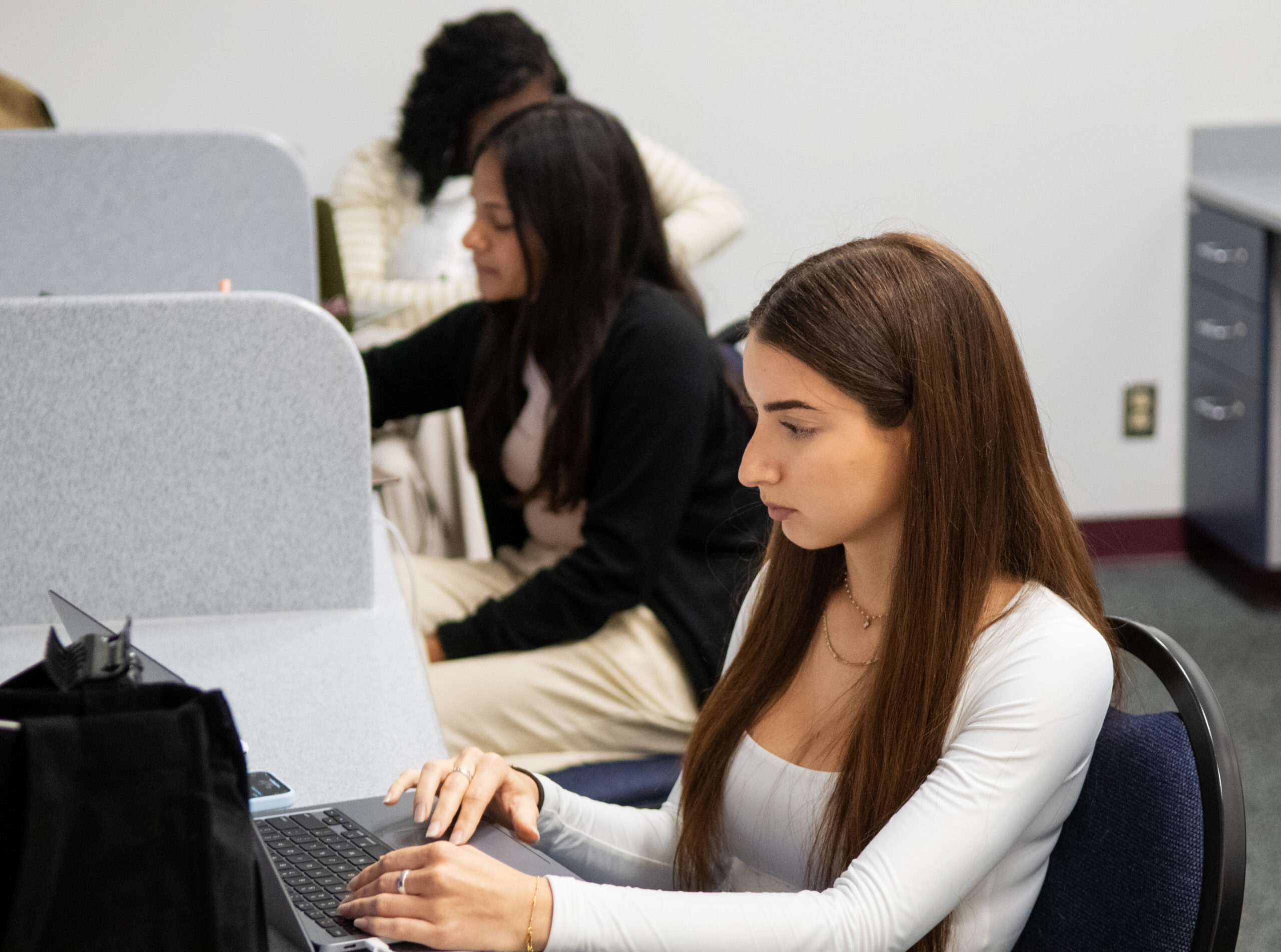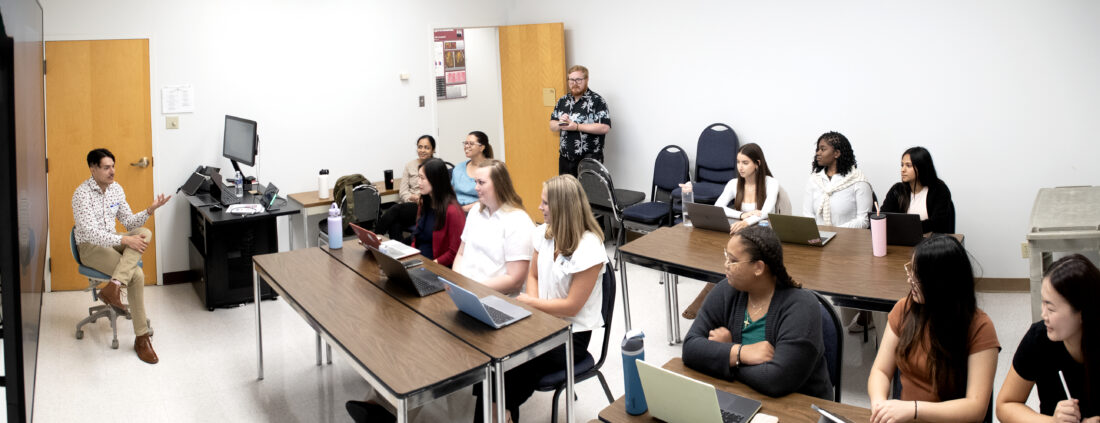Undergrad research program doubles in second year

In only its second year, Texas A&M School of Dentistry’s Biomedical Informatics and Behavioral Sciences Program has almost doubled in size. The inaugural class of the undergraduate research program had five students in 2023, and this year nine students are enrolled.
Program director Dr. Peggy Timothé said this is a significant step for not only the program, but also in recognition of the importance of public health in general. The BIBS program gives students tools to analyze data, connect it to behavioral sciences and use their findings to determine the healthcare needs of specific communities, as well as any disparities in said care.
This study of biological data and outside factors on a community’s health, or “bioinformatics,” can help improve a patient’s health but also lead entire populations toward healthier living and better access to care. Public health science is vital to improve the lives of population groups, Timothé said, not just individuals, and a growing BIBS program shows a growing need and interest in the health care community for this area.
“It’s very important for dentists to understand bioinformatics,” she said, adding that they worked hard to promote the BIBS program this year and it felt good to see it growing. “We’re funded by the National Library of Medicine. They host several programs across the country, but we’re the only one specifically focused on oral health care.”

The nine participants in this year’s program come from all over the country: Texas, Louisiana, California, Kentucky and New York. All are juniors and seniors near the end of their undergraduate degrees, looking to pursue their interest in oral public health sciences.
Angela Chen is a senior at Berea College in Kentucky, studying biomedical sciences. She needed a program like this to complete her degree plan. Texas A&M School of Dentistry was almost one-of-a-kind with its BIBS program, she said, which focused specifically on the oral health aspects of public health.
“I wanted to find something that had something to do with dentistry,” she said. “There are few dental research opportunities for undergrads, so this was perfect for me.”
While on campus, students take mini-courses at the dental school and conduct mentor-led research projects. They also participate in weekly lab sessions, are trained in the programming language R and can learn more about various aspects of public health, including biomedical informatics, machine learning, behavioral sciences and ethics.
Vy Ha, a senior pursuing a neuroscience degree at Austin College, said public health, has been the focus of her pre-dental track.
“I wanted to gain more experience in informatics, so this research program is perfect,” she said. “It’s all of my interests merged into one.”
Dental school alum Dr. Richard Rodriguez, ’21, was the first guest lecturer of this year’s program. He is a public health dentist based in Anchorage, Alaska, and one of Timothé’s former students.
“I’m personally very passionate about public health,” Rodriguez said. “I’m also passionate about getting young people interested in public health. If you keep up with the news you can see health care is consistently an issue, and how to fund health care. I think what we really need to realize is we need to invest more into public health initiatives so that we can reduce disease burdens while also working to make health care more affordable and accessible.”
Tia Pandey, junior public health major at Texas A&M University, said the first day of the program was exciting, and she was eager to see what the coming weeks had to offer. She said it afforded her the opportunity to learn more about public health and established the practice of being a lifelong learner.
“I really like the program so far and all the people I’ve gotten to meet,” Pandey said. “Science is really about constantly learning and learning new things. This program allows us an opportunity to do that.”